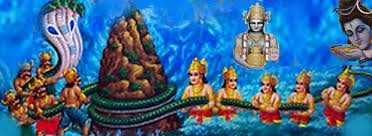Vasu Baras or Govatsa Dwadashi 2021 - FestiveIndia4ever.
Vasu Baras, which falls on the first day of Diwali, is a day dedicated to cow worship. Vasu Baras falls on the 12th day of Krishna Paksha in the month of Kartik, according to the Hindu calendar. Cows are revered in Hindu mythology as sacred and divine incarnations.
Govatsa Dwadashi is a Hindu cultural and religious festival that marks the start of Diwali celebrations, particularly in Maharashtra, India, where it is known as Vasu Baras. In Gujarat, it is known as Vagh Baras, while in Andhra Pradesh, it is known as Sripada Vallabha Aradhana Utsav of Sripada Sri Vallabha in Pithapuram Datta Mahasamsthan. [3] Cows are revered in Hinduism as being sacred and similar to mothers in terms of supplying nourishment to humans.
Govatsa Dwadashi is also known as Vagh in some northern states, which means "repaying one's financial debts," and is thus a day when businesspeople empty their accounts books and do not undertake any further transactions.
While most people are aware of why Diwali is celebrated, few are aware that it began with cow worship. Vasu Baras, which falls on the first day of Diwali, is a day dedicated to cow worship. Vasu Baras falls on the 12th day of Krishna Paksha in the month of Kartik, according to the Hindu calendar. The date for this year is November 12th.
Cows are revered in Hindu mythology as sacred and divine incarnations. In some areas, the day is also known as Vasubaras, Govatsa Dwadashi, or Nandini Vrat. The holiday, however, is most widely observed in Maharashtra, where it is associated with the honouring of cows and calves.
Kamadhenu represents purity, non-erotic fertility, sacrifice, and motherly nature, all of which contribute to human life's nourishment. The cow is the supreme goddess of Sanatan Dharma devotees and is thought to provide strong favours. She has the power to grant all of the owner's requests and desires if she is revered, respected, and loved.












Kindly avoid any spam links